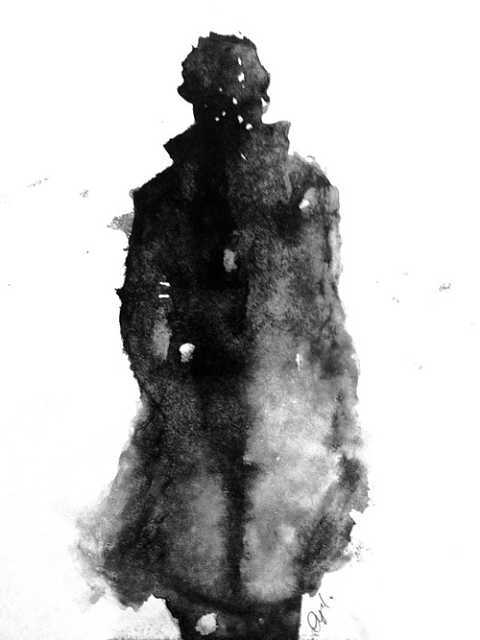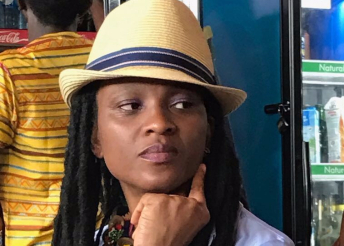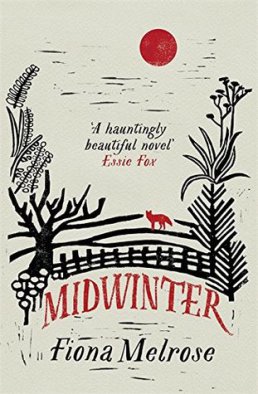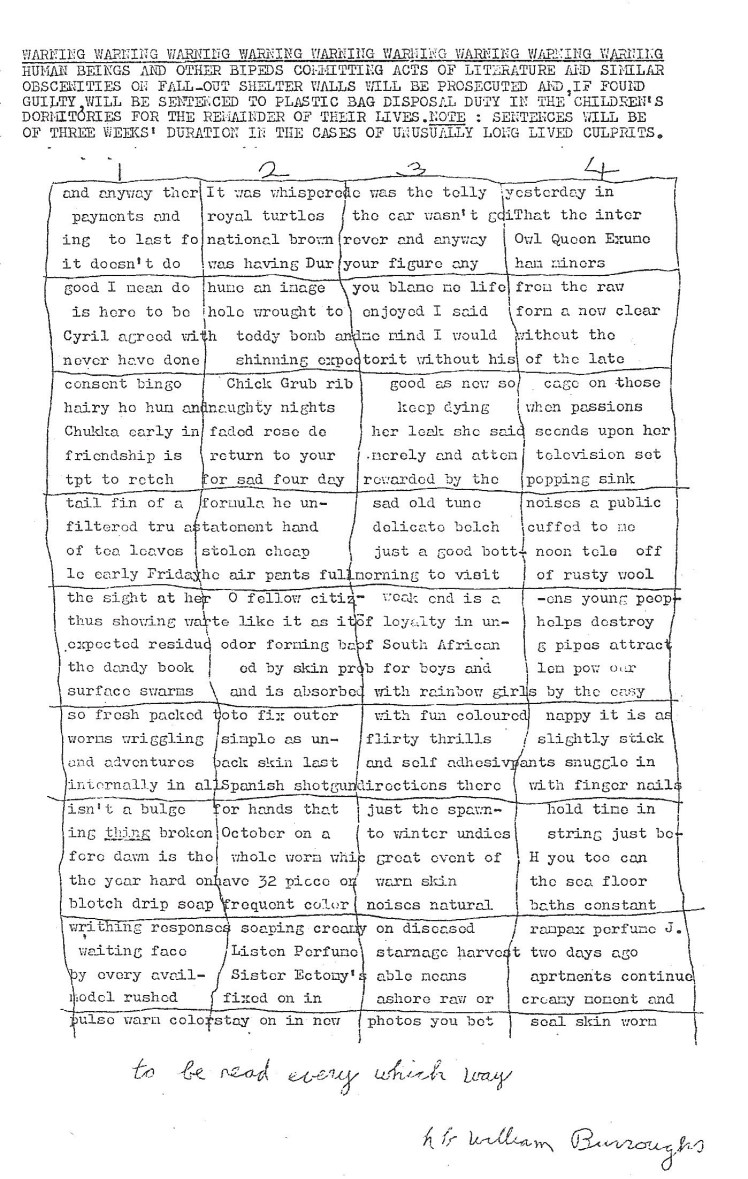Every now and then, I’ll log onto Goodreads and go on a massive book-adding spree, accompanied by an internal monologue that sounds something like That looks good! I want to read that one! And this one too! And, oooh, I HAVE to read this, and I have to remember to check that one out when it’s released next year, etc, etc, rinse and repeat. It was in the midst of one of these book-adding sprees that I stumbled on Wanderlove by Kirsten Hubbard. I read the blurb, thought I have to read this! and added it to my to-read shelf. Usually that’s where the story ends, and I end up with a ever-growing to-read list of books on Goodreads, of which I actually read very few, but Wanderlove proved to be one of those rare exceptions where I actually read the book (hurrah!), and it was exactly what I had hoped it would be.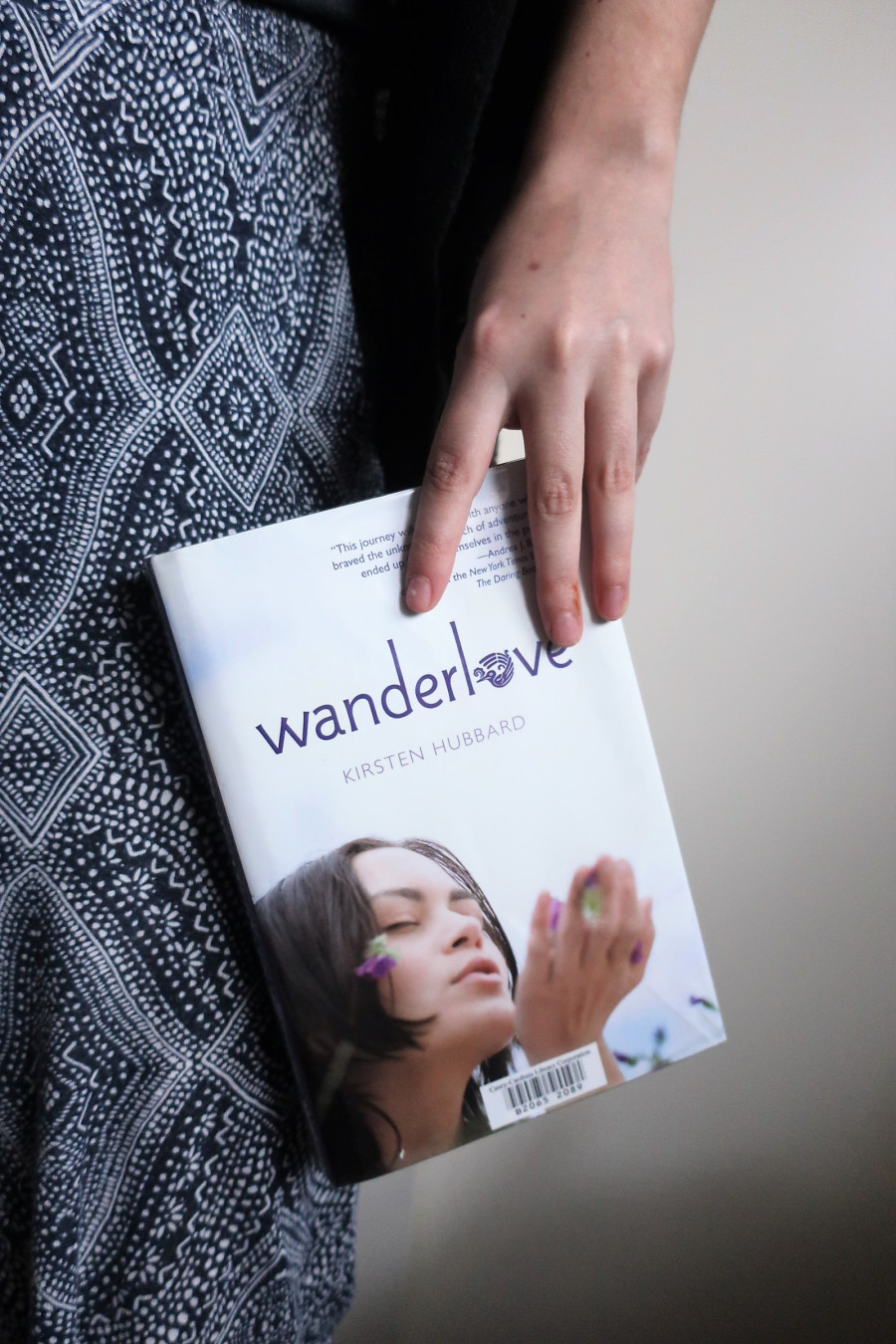
So what’s it about? Courtesy of Goodreads, the blurb reads:
It all begins with a stupid question:
Are you a Global Vagabond?
No, but 18-year-old Bria Sandoval wants to be. In a quest for independence, her neglected art, and no-strings-attached hookups, she signs up for a guided tour of Central America—the wrong one. Middle-aged tourists with fanny packs are hardly the key to self-rediscovery. When Bria meets Rowan, devoted backpacker and dive instructor, and his outspokenly humanitarian sister Starling, she seizes the chance to ditch her group and join them off the beaten path.
Bria’s a good girl trying to go bad. Rowan’s a bad boy trying to stay good. As they travel across a panorama of Mayan villages, remote Belizean islands, and hostels plagued with jungle beasties, they discover what they’ve got in common: both seek to leave behind the old versions of themselves. And the secret to escaping the past, Rowan’s found, is to keep moving forward.
But Bria comes to realize she can’t run forever, no matter what Rowan says. If she ever wants the courage to fall for someone worthwhile, she has to start looking back.
Kirsten Hubbard lends her artistry to this ultimate backpacker novel, weaving her drawings into the text. Her career as a travel writer and her experiences as a real-life vagabond backpacking Central America are deeply seeded in this inspiring story.
I love books about travel. Like, love love love books about travel. If a blurb mentions travel somewhere in the blurb, that’s often enough to convince me to read the book, without knowing anything else about the story. And as a self-described backpacker, the fact that this was a backpacking travel story was a dream come true! This seemed like the perfect book for me.
I had very high hopes for Wanderlove that I tried to be cautious about, because I had equally high fears of being disappointed. Happily, Wanderlove delivered precisely what I’d hoped for. Did it blow my expectations out of the water? No. But reading it was so genuinely enjoyable, and a very pleasant way for me to escape the reality of the roughly seventy trillion assignments that I had due.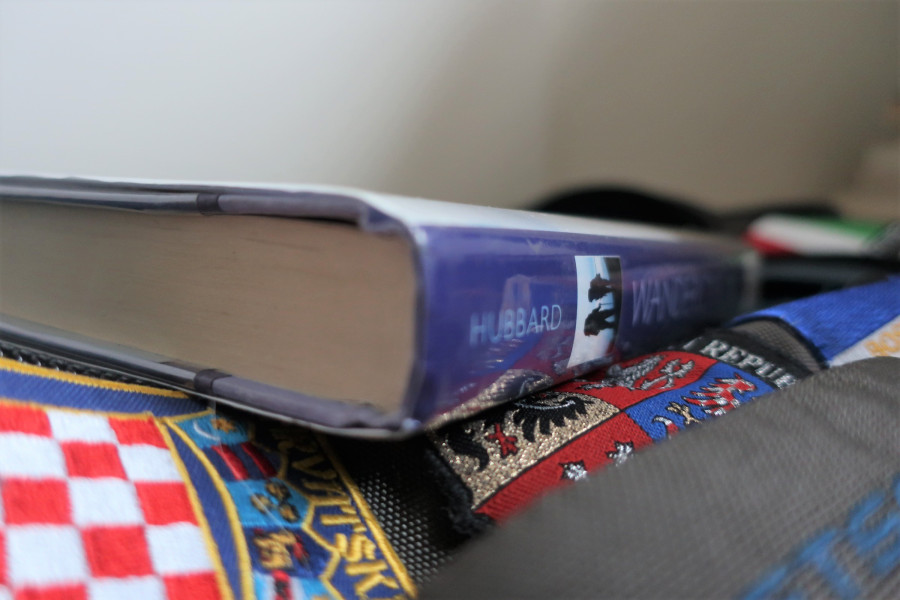
My favourite thing about Wanderlove were the deliciously vivid descriptions. Which, granted, should 100% be a prerequisite for any kind of travel story, but Hubbard’s descriptions are next level and really made the story and made the settings come alive. Wanderlove perfectly captures the feeling of being somewhere new and unfamiliar, where you notice everything in incredible, bright detail, and I can’t speak highly enough of how well the descriptions in this story achieved that.
Bria, as a character, was likeable and sympathetic, and worked really well as a protagonist for this kind of story. Her naïveté did seem a little too much sometimes (but this was addressed by other characters in the story, like when she constantly marvels at how people know how to travel around, and what places to go to, and Rowan’s just like, “Dude, you just look it up???” Which I really liked, because in my experience travelling isn’t some mystical ability so much as a bit of confidence and Googling). She wasn’t the kind of character that was particularly astounding, but she was very much believable, grows as a person and probably if I met her I would want to take her under my wing.
Bria’s characterisation as someone who had no idea what they wanted to do in life (#relatable) and feeling the need to totally reinvent herself and work out who she is as a person was excellent. I hate using the word journey to describe a character’s emotional growth (despite the fact that I use it constantly), but Bria’s journey towards self-discovery rang so true to me – travel wasn’t some magical cure-all, and she still wasn’t quite there yet by the end of the story, but it opened her eyes and helped her realise what she was capable of and that she deserved better than the way certain people, including stupid-ex-boyfriend Toby (who joins the list of Boys in Books who Are the Literal Worst because he’s just perfectly horrid), had been treating her.
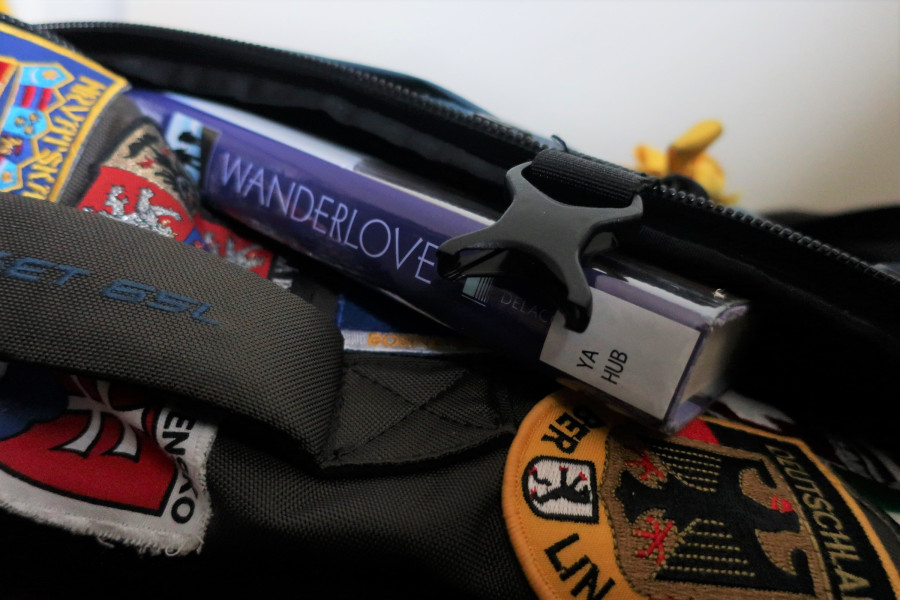 I don’t tend to like the well-travelled, Love Interest boys that appear in travel-y YA books all that much (Willem, I’m looking at you in particular), but I didn’t mind Rowan. The ~past~ that he’s running from felt a little forced, and sometimes I wanted to yell at him to stop being so bloody moody, but he grew on me as the story progressed. The girl-meets-well-travelled-boy-who-helps-her-discover-how-to-be-adventurous trope is, I think, a big part of the reason why I’m not such a fan of the boys in these kinds of stories (as much as I adore travel books!), since I, and pretty much every other girl who’s travelled, managed to work out the whole travel thing without needing some boy to show me how it’s done, but although Wanderlove doesn’t completely avoid this scenario, it didn’t entirely fall into it either, and I think the presence of Starling, as Rowan’s equally-if-not-more-so well-travelled sister aided in this. I also really enjoyed the contrasting character dynamics and relationships between all three of them.
I don’t tend to like the well-travelled, Love Interest boys that appear in travel-y YA books all that much (Willem, I’m looking at you in particular), but I didn’t mind Rowan. The ~past~ that he’s running from felt a little forced, and sometimes I wanted to yell at him to stop being so bloody moody, but he grew on me as the story progressed. The girl-meets-well-travelled-boy-who-helps-her-discover-how-to-be-adventurous trope is, I think, a big part of the reason why I’m not such a fan of the boys in these kinds of stories (as much as I adore travel books!), since I, and pretty much every other girl who’s travelled, managed to work out the whole travel thing without needing some boy to show me how it’s done, but although Wanderlove doesn’t completely avoid this scenario, it didn’t entirely fall into it either, and I think the presence of Starling, as Rowan’s equally-if-not-more-so well-travelled sister aided in this. I also really enjoyed the contrasting character dynamics and relationships between all three of them.
The ending wasn’t overly spectacular and felt like it all wound up in a way that was a little too neat (and occasionally relied a leeeetle too much on coincidence). It didn’t ruin my enjoyment of the story, but I think we could have ended on a stronger note. That would be my only real major gripe with Wanderlove, because overall (if you haven’t worked this out yet) I loved it, but the ending wasn’t quite at the same level as the early-mid parts of the book.
The traveller-vs-tourist conversation is pretty much unavoidable if you spend enough time in hostels and I liked how it (or a version of it), along with other travel-related issues and debate-type-things were presented and discussed in Wanderlove. The appropriate adjective isn’t coming to me (GAH) but the book looked at different odd and not-so-great aspects of travelling and travellers in a way that was intelligent and wasn’t afraid to let the characters sometimes be guilty of seeing things in a way that is maybe sometimes snobbish or a little simplistic.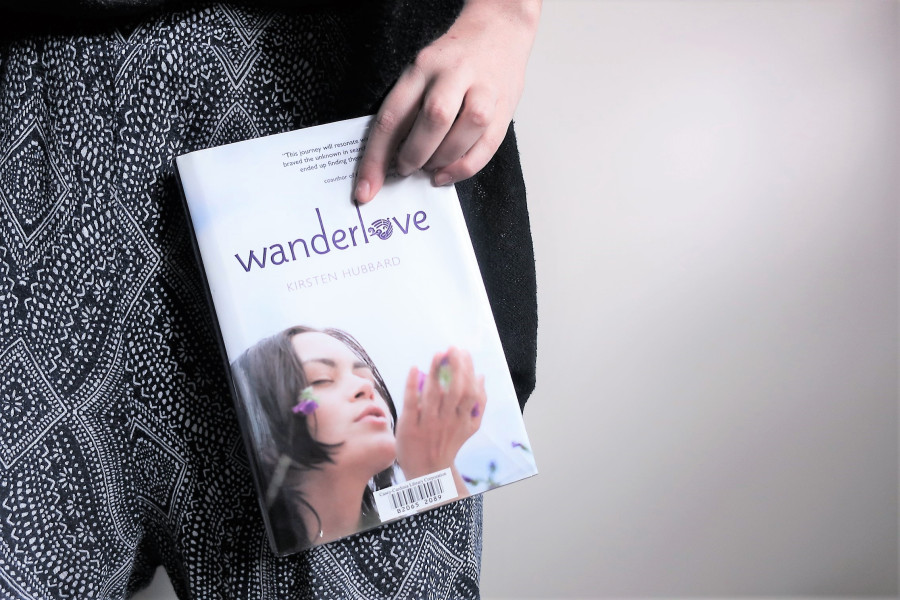
The illustrations in the book were a lovely, lovely addition.
Wanderlove was simply wander-ful (I am deeply, deeply disappointed in the good people of Goodreads that I haven’t seen more plentiful use of this pun), and whilst it probably won’t be a book that I’ll obsessively reread, reading for the first time was a joy.
And now I really, really want to go to Central America. Help.
Advertisements Share this: